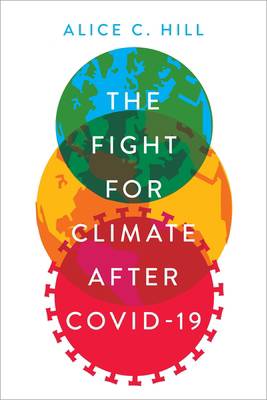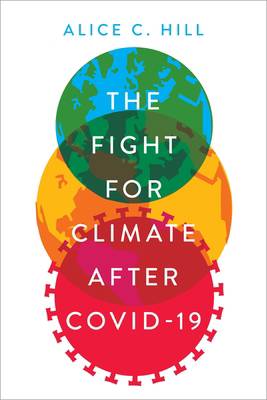
- Afhalen na 1 uur in een winkel met voorraad
- Gratis thuislevering in België vanaf € 30
- Ruim aanbod met 7 miljoen producten
- Afhalen na 1 uur in een winkel met voorraad
- Gratis thuislevering in België vanaf € 30
- Ruim aanbod met 7 miljoen producten
Zoeken
Omschrijving
COVID-19 exposed the world's failure to prepare for the worst -- can we learn to build back better?
The COVID-19 pandemic has hit our world on a scale beyond living memory, taking millions of lives and leading to a lockdown of communities worldwide. A pandemic, much like climate change, acts as a threat multiplier, increasing vulnerability to harm, economic impoverishment, and the breakdown of social systems. Even more concerning, communities severely impacted by the coronavirus still remain vulnerable to other types of hazards, such as those brought by accelerating climate change. The catastrophic risks of pandemics and climate change carry deep uncertainty as to when they will occur, how they will unfold, and how much damage they will do. The most important question is how we can face these risks to minimize them most. The Fight for Climate after COVID-19 draws on the troubled and uneven COVID-19 experience to illustrate the critical need to ramp up resilience rapidly and effectively on a global scale. After years of working alongside public health and resilience experts crafting policy to build both pandemic and climate change preparedness, Alice C. Hill exposes parallels between the underutilized measures that governments should have taken to contain the spread of COVID-19 -- such as early action, cross-border planning, and bolstering emergency preparation -- and the steps leaders can take now to mitigate the impacts of climate change. Through practical analyses of current policy and thoughtful guidance for successful climate adaptation, The Fight for Climate after COVID-19 reveals that, just as our society has transformed itself to meet the challenge of coronavirus, so too will we need to adapt our thinking and our policies to combat the ever-increasing threat of climate change. Unapologetic and clear-eyed, The Fight for Climate after COVID-19 helps us understand why the time has come to prepare for the world as it will be, rather than as it once was.
The COVID-19 pandemic has hit our world on a scale beyond living memory, taking millions of lives and leading to a lockdown of communities worldwide. A pandemic, much like climate change, acts as a threat multiplier, increasing vulnerability to harm, economic impoverishment, and the breakdown of social systems. Even more concerning, communities severely impacted by the coronavirus still remain vulnerable to other types of hazards, such as those brought by accelerating climate change. The catastrophic risks of pandemics and climate change carry deep uncertainty as to when they will occur, how they will unfold, and how much damage they will do. The most important question is how we can face these risks to minimize them most. The Fight for Climate after COVID-19 draws on the troubled and uneven COVID-19 experience to illustrate the critical need to ramp up resilience rapidly and effectively on a global scale. After years of working alongside public health and resilience experts crafting policy to build both pandemic and climate change preparedness, Alice C. Hill exposes parallels between the underutilized measures that governments should have taken to contain the spread of COVID-19 -- such as early action, cross-border planning, and bolstering emergency preparation -- and the steps leaders can take now to mitigate the impacts of climate change. Through practical analyses of current policy and thoughtful guidance for successful climate adaptation, The Fight for Climate after COVID-19 reveals that, just as our society has transformed itself to meet the challenge of coronavirus, so too will we need to adapt our thinking and our policies to combat the ever-increasing threat of climate change. Unapologetic and clear-eyed, The Fight for Climate after COVID-19 helps us understand why the time has come to prepare for the world as it will be, rather than as it once was.
Specificaties
Betrokkenen
- Auteur(s):
- Uitgeverij:
Inhoud
- Aantal bladzijden:
- 272
- Taal:
- Engels
Eigenschappen
- Productcode (EAN):
- 9780197549704
- Verschijningsdatum:
- 1/09/2021
- Uitvoering:
- Hardcover
- Formaat:
- Genaaid
- Afmetingen:
- 144 mm x 221 mm
- Gewicht:
- 385 g

Alleen bij Standaard Boekhandel
+ 90 punten op je klantenkaart van Standaard Boekhandel
Beoordelingen
We publiceren alleen reviews die voldoen aan de voorwaarden voor reviews. Bekijk onze voorwaarden voor reviews.











